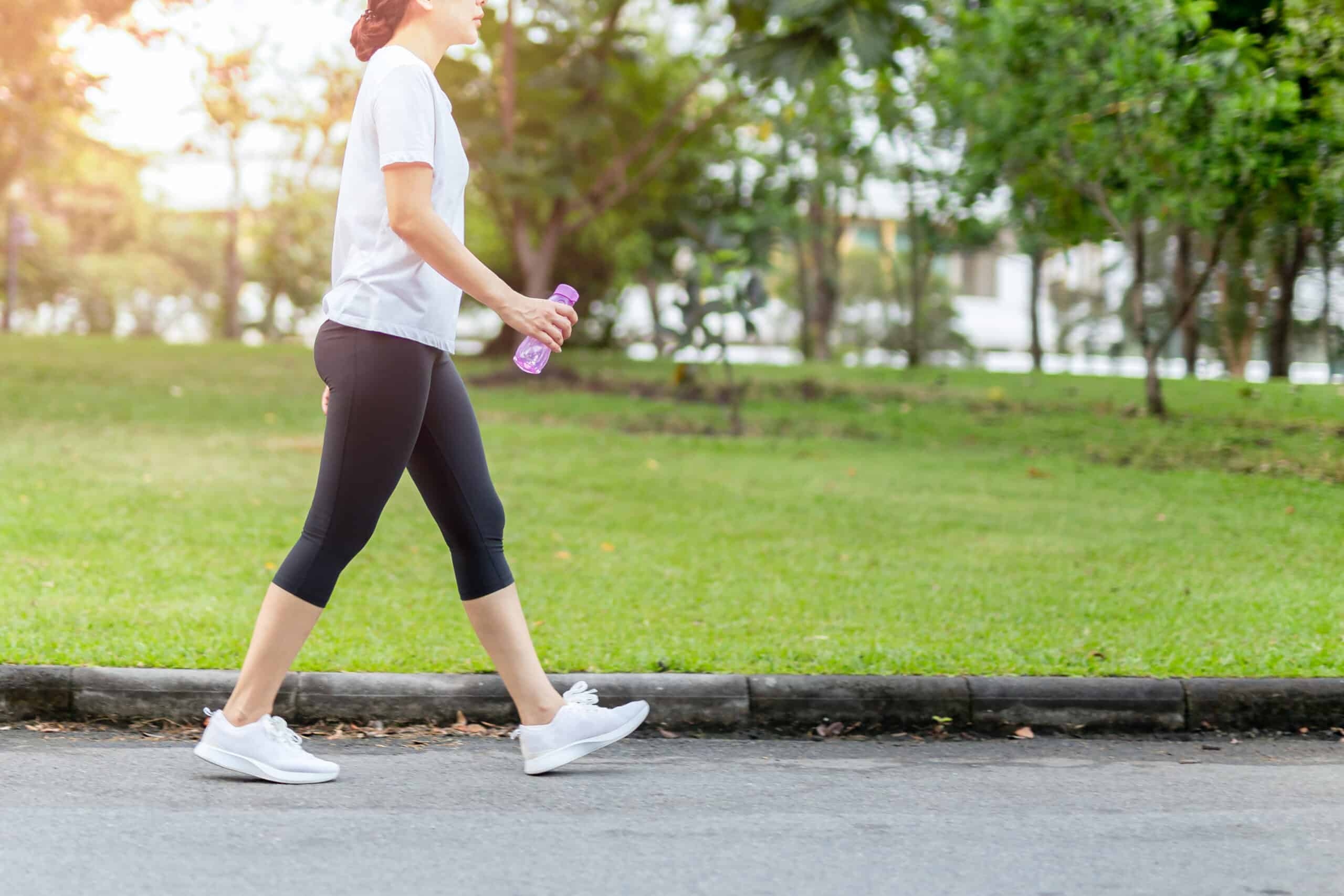How to Survive the Day After a Bad Night’s Sleep

By Franki Hanke
Whether it was because of the newest season dropped on Disney+ or from racing thoughts about the work week ahead, waking up from a bad night’s sleep is the worst. The day ahead feels like a write-off before it’s even started.
How can a day be any good on so little sleep? Learn how to recover from a bad night’s sleep with these eight tips to improving the day after a rough night.
How to Recover from a Bad Night’s Sleep
Be Self-Aware
I’m sure you know that a bad night’s sleep affects your mood. Poor sleep affects the whole next day with a slew of side effects! A French study of five thousand participants found insomnia symptoms affected cognitive functioning in a variety of ways:
→ decreased productivity and quality of work
→ troubles concentrating and staying focused
→ difficulties remembering or recalling information
→ irritability
→ anxious or depressed moods
Other research has further found sleep deprivation to affect mood all across the board. A sleepless night enhances negative moods and often dampers positive moods.
Instead of letting your irregular moods control the day, practice self-awareness of the real root of the problem: lack of sleep.
→ Give yourself more grace both in the face of failures and in how you plan your day.
Try to minimize frustrating or difficult tasks, if possible.
→ Be mindful of your own pre-disposition to be more forgiving with strangers, coworkers, family, and friends. Pause before reacting.
→ Try to counteract the bad mood with things that make you happy. Play good music, bust out your favorite outfit, and actively pursue a better mood.
Fuel up with the Right Breakfast
Your body needs sleep and food alike to stay energized. If you’re short on a few hours of sleep, avoid filling the gap with the brief energy boosts from sugary foods and opt instead to fill your tank with complex carbs and dense proteins.
For breakfast, add complex carbs with oats. Flavor your oatmeal with your favorite fruits, a dash of milk, and some nuts for added nutrients and protein. Milk and nuts (or nut butter) add protein to the dish for a full-belly feeling.
Resist the Snooze Button
It’s tempting after a bad night to sleep in a bit longer (or go to bed earlier), but it’s not a good idea. Our bodies’ circadian rhythm (our internal clock) relies on our repetitive routine to prepare for sleep throughout the day. Changing your sleep schedule can disrupt this and lead to unbalanced sleep in response.
“The truth is, after one bad night of sleep you should change very little in your routine. You should still get up at the same time you do every other morning, even if it’s the weekend,” said Sonia Ancoli-Israel, Ph.D., Director of Education at UCSD Sleep Medicine Center, as reported by Dwyer Frame for Health.
Use Caffeine Sparingly
Just like your sleep schedule, keep your coffee (or tea) schedule roughly the same.
If you usually one or two cups of coffee throughout the morning, do the same but resist the urge to overcompensate with extra caffeine. The benefits of wakefulness drop off after two cups of coffee and can lead to poor sleep the following night.
Unless you usually drink energy drinks, try to avoid them, too. In the afternoon especially, don’t opt for extra caffeine. For a short-term perk-up, try a snack, movement, or a cold glass of water.
Seek Out Natural Light
Rather than caffeine, trigger your body’s natural alertness with natural light. Try to get a dose of the sun right away by eating your breakfast outside, but don’t stop there.
Within your work schedule, add frequent breaks outside or brief, brisks walks to dose up on the sun throughout the day. This is especially helpful during the afternoon slump between 1:00 and 2:00 PM to re-energize for the remaining hours of the day.
Get The Finer Life
Our Sunday email has tips and content you will love – exclusively for our subscribers.
"*" indicates required fields
This works because the sun’s light (and, to a degree, any light exposure) suppresses the body’s production of melatonin. High melatonin in the body causes a sleepy sensation to prepare the body for rest. Conversely, low melatonin levels make us alert and awake.
Chew Gum
Once your coffee quota has run out, swap to chewing gum for a boost of quick energy. A 2012 study found chewing gum to increasing alertness and performance on focused tasks. So, when you’re craving another cup to stave of sleepiness, try a stick of gum instead to help recover from a bad night’s sleep.
Add Movement
After a night of tossing and turning, exercise might seem like the last thing you want to do, however, movement can wake you up. Research has associated physical activity and positive mood. Moderate exercises are most effective at boosting mood likely due to the release of endorphins, serotonin, and dopamine. So, keep it easy with a brisk walk or mid-level cardio during your day.
Recover from Bodily Discomfort
If you woke up with body aches or pain from sleeping in an odd position, morning flexibility or yoga training can decrease your discomfort throughout the day. Practice some extra self-care to relieve discomfort with stretching.
→ If you woke up with a sore back, try Yoga for Back Pain.
→ If you woke up with a tense neck or stiff shoulders, try Yoga for Neck and Shoulder.
→ If you woke up with all-over tension, try Total Body Yoga.
If pain persists, try apply heat in a warm shower or through a heat pad and consider applying a topical pain gel containing diclofenac diethylamine like Voltaren for inflammation. Consult your primary physician for medical guidance, though.
Don’t limit your movement to the morning, take frequent breaks during your day and infuse small sessions to fend off tiredness. If your morning didn’t have time for a yoga session, find time for some standing, office-friendly stretching.
Take a Nap (the Right Way)
A nap can augment last night’s poor sleep, but only if done right. How many times have you played “nap roulette” and gambled about waking up groggy and irritable instead of rested?
Boost your energy levels with a brief nap under 20 minutes in the early afternoon. Napping too long (over 30 minutes) will lead to sleep inertia, the body wants to sleep through a full cycle. If you’re so exhausted you need a longer nap, aim for 90 minutes for a full cycle.
Most people shouldn’t need to nap often. If you’re consistently sleep deprived, reach out to your primary care physician for informed, medical advice. A good night’s sleep is essential to your health. Plus, you deserve it.
Why should I nap, but I shouldn’t go to bed early?
Napping’s essential role is to reset our homeostatic sleep drive. That is, the body’s urge to sleep. When you wake up with enough sleep, our homeostatic sleep drive is low. Throughout the day, to prepare for resting again, the pressure to sleep rises. A brief nap can reset the drive and improve focus.

How to nap right
1. Pick the right time. Naptime can range between 12 PM to 2 PM but depends on your schedule. Aim for something before your afternoon slump and in the middle of your morning alarm and bedtime.
2. Set an alarm and limit naptime. Naps should be over five minutes (where research found no benefits) but no longer than 25 minutes.
3. Create a dark atmosphere. Close your shades, dim electronics, and use an eye mask.
4. Cover distracting noises with white noise and/or relaxed music.
5. Prepare for a short nap with breathing exercises and/or meditation. This will relax you for a power nap that maximizes that brief window.
Naps aren’t for everyone.
The National Sleep Foundation notes that naps aren’t for everyone. You will know yourself best, but those with insomnia or other sleep disorders shouldn’t risk affecting their nighttime sleep schedule. If napping always ends in grogginess, skip it.
Improve Sleep Going Forward
At Finer Things, we think sleep is pretty important, and we’ve already written the book on it. For tips on improving your habits around sleep so you wake up like this less often, download our Sleep E-Book today.

Want a Free Guide?
You will receive our free 19-page guide and access to our exclusive content, private invitations, and tips you’ll love.
"*" indicates required fields
Facebook Group




